Introduction
Shale land services encompass a wide range of activities essential for the successful exploration and production of oil and gas from shale formations. These services include land acquisition, title research, environmental assessments, and regulatory compliance, all of which require specialized knowledge and expertise due to the geological complexity of shale formations and the unique extraction methods involved. Recent developments, such as the Federal Energy Regulatory Commission's emphasis on stakeholder involvement in the natural gas pre-filing review process, highlight the importance of early resolution of environmental issues for smoother project development.
Additionally, partnerships like that between Petrobras and TGS demonstrate a commitment to technological innovation and sustainability in the sector. The significant contribution of oil and gas to global energy consumption underscores the growing demand for expertise in shale land services to navigate the regulatory and environmental challenges associated with this industry.
Understanding Shale Land Services
'Shale resource services encompass a thorough range of tasks essential for the efficient exploration and extraction of oil and gas from rock formations.'. These services generally include property acquisition, title research, ecological assessments, and regulatory compliance. The inherent geological complexity of shale formations and the specialized extraction methods required mandate a high level of expertise and knowledge in land services.
For instance, the Federal Energy Regulatory Commission's (FERC) Office of Public Participation recently highlighted the importance of involving stakeholders, including affected landowners and area residents, in the natural gas pre-filing review process. This approach aims to identify and resolve ecological issues early, ensuring smoother project development.
Moreover, innovations in technological and research collaborations, such as the partnership between Petrobras and TGS, reflect a commitment to advancing efficiency and sustainability in oil and gas operations. This partnership focuses on developing new technologies and conducting advanced research to enhance exploration and production activities, aligning with global sustainability goals.
Statistics highlight the importance of these services; the oil and gas industry represented 56.8% of the global total power usage in 2021, with a forecasted CAGR of 3.2% in geophysical services. This growth emphasizes the rising demand for specialized knowledge and efficient land management to navigate the intricate regulatory and environmental landscape of exploration and production.
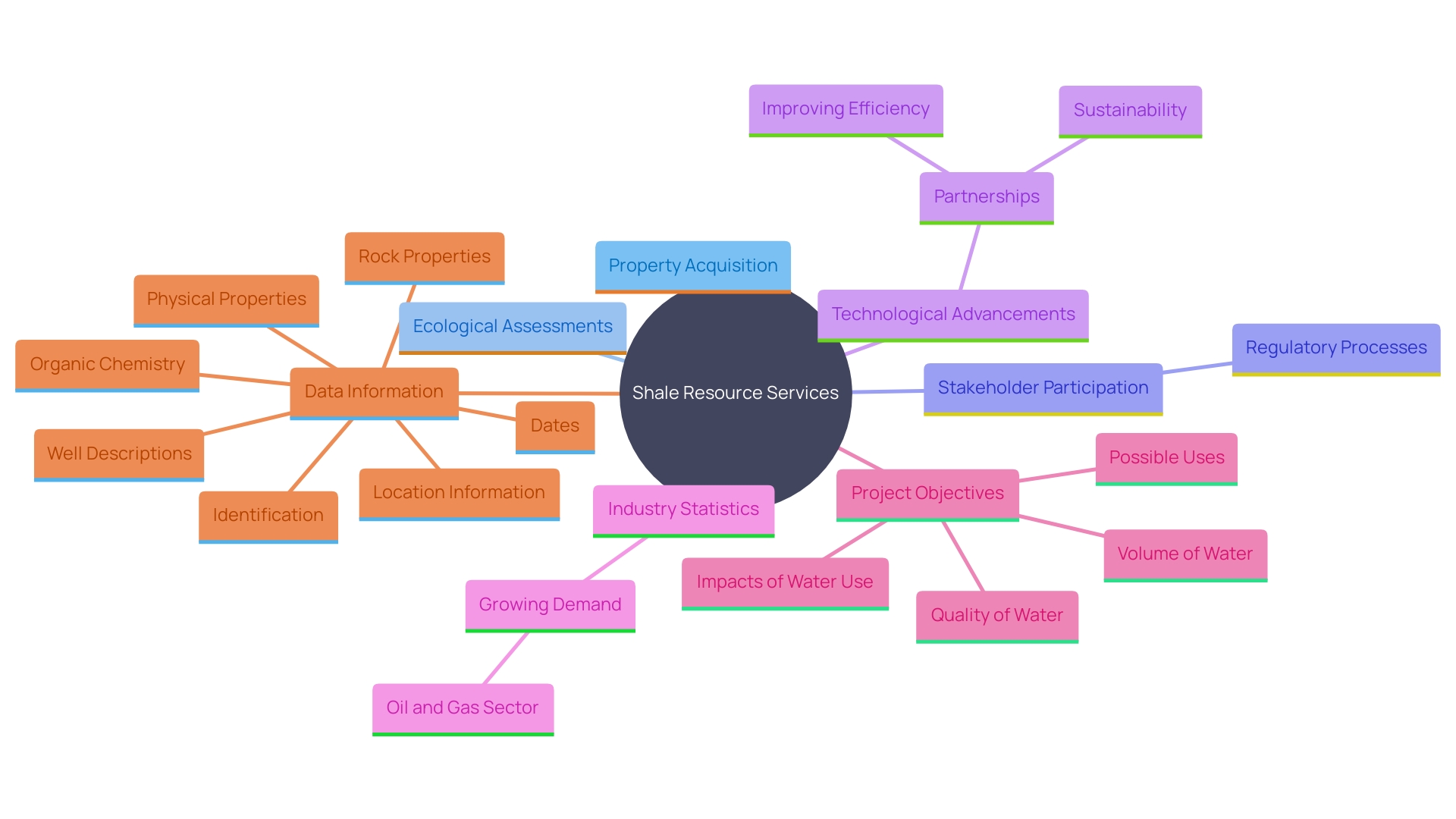
Trends in Pittsburgh's Oil and Gas Industry
The oil and gas industry in Pittsburgh has undergone substantial transformations, propelled by advancements in extraction technologies and evolving market demands. The increase in unconventional gas extraction, especially from rock formations using methods such as fracking, has greatly transformed the area's energy production environment. Fracking, which involves injecting water, sand, and chemicals into shale rock to release oil and gas, has unlocked previously inaccessible reserves, spurring a notable increase in production.
This surge has driven substantial investment in land services, as companies strive to optimize their land portfolios while navigating complex regulatory frameworks. Managing these legal and regulatory requirements is crucial for ensuring compliance and operational efficiency. Additionally, there's an intensified focus on sustainable practices and community engagement, reflecting a heightened public awareness of environmental impacts. This is reflected in the increasing popularity of clean power alternatives among Americans, with 78% supporting more solar options and 72% favoring wind power over fracking.
Pittsburgh's long-standing industrial heritage and its current position as a leader in green-certified building space make it a focal point for clean energy investments. The area's dedication to sustainable growth is further highlighted by initiatives like the Allegheny Lead Safe Homes Program, which aims to tackle health-related issues.
Overall, the evolution of the oil and gas sector in Pittsburgh illustrates a dynamic interplay between technological innovation, regulatory adherence, and a commitment to sustainable and community-focused practices.
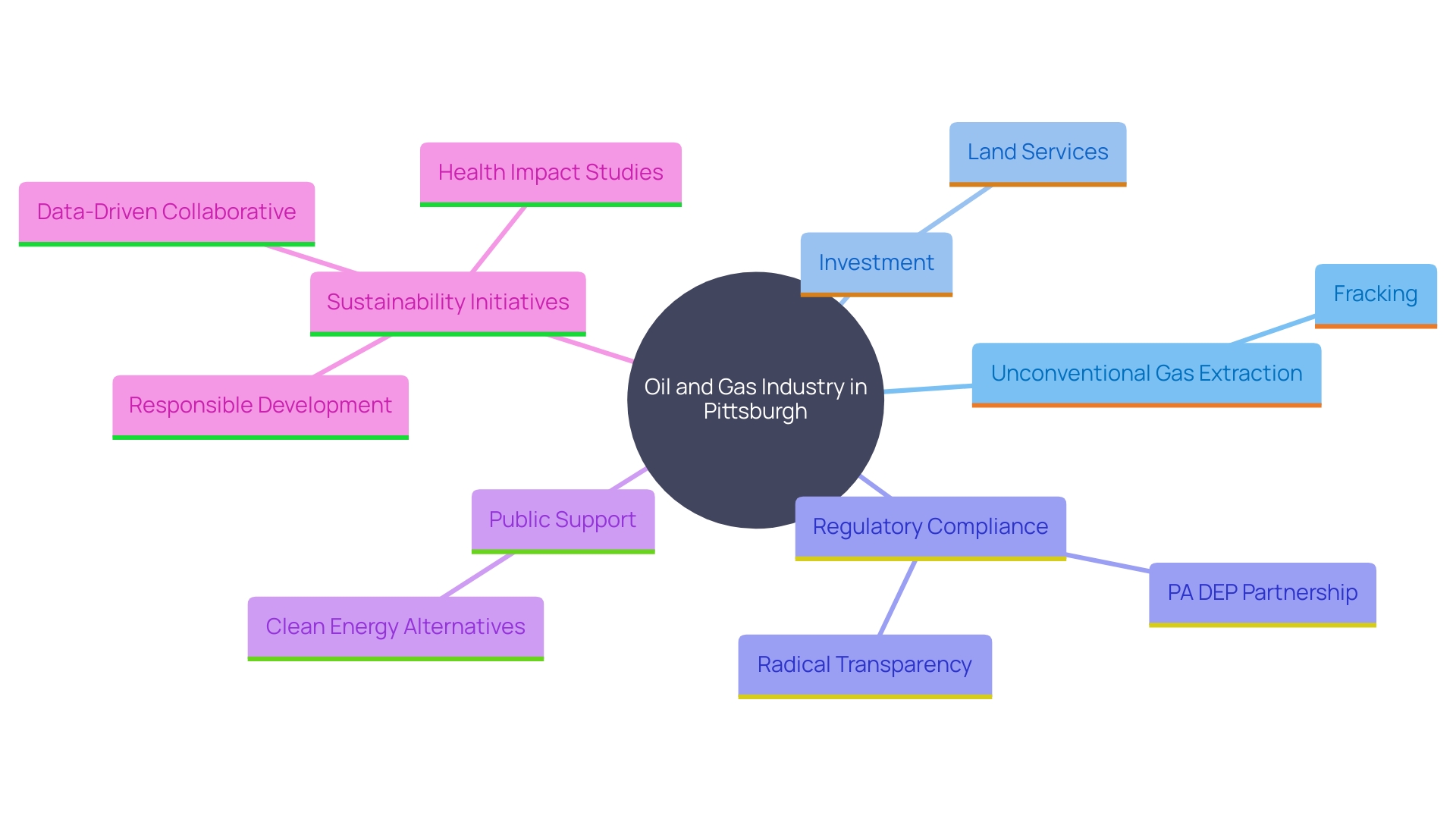
Regulatory Oversight and Compliance in Shale Development
'Regulatory supervision is crucial in resource extraction, ensuring compliance with strict ecological standards and territory use regulations.'. In Pittsburgh, several state and local organizations are responsible for managing permitting processes, land-use planning, and assessments related to the environment. This regulatory framework is essential for legal operations, maintaining public trust, and safeguarding natural resources. Companies involved in shale land services must stay abreast of evolving regulations and actively engage in the compliance process to mitigate risks. Specialists in energy and energy politics from organizations such as Stanford highlight the significance of refining the permitting and assessment processes to boost efficiency and guarantee strong ecological and human health results. Additionally, the recent lawsuit filed by the City of Chicago against major oil and gas companies underscores the critical nature of transparency and accountability in the industry. The lawsuit alleges that these companies have long concealed the harms of fossil fuels, which has led to increased costs for adaptation and mitigation efforts. This case highlights the necessity for companies to operate transparently and ethically within the regulatory frameworks. Moreover, postponed retirement of offshore infrastructure, as observed in the Gulf of Mexico, poses significant ecological, safety, and financial risks, highlighting the necessity for strict regulatory enforcement to avert such issues. Overall, adherence to regulatory standards is not only a legal obligation but a crucial element in preserving the integrity and sustainability of development operations.
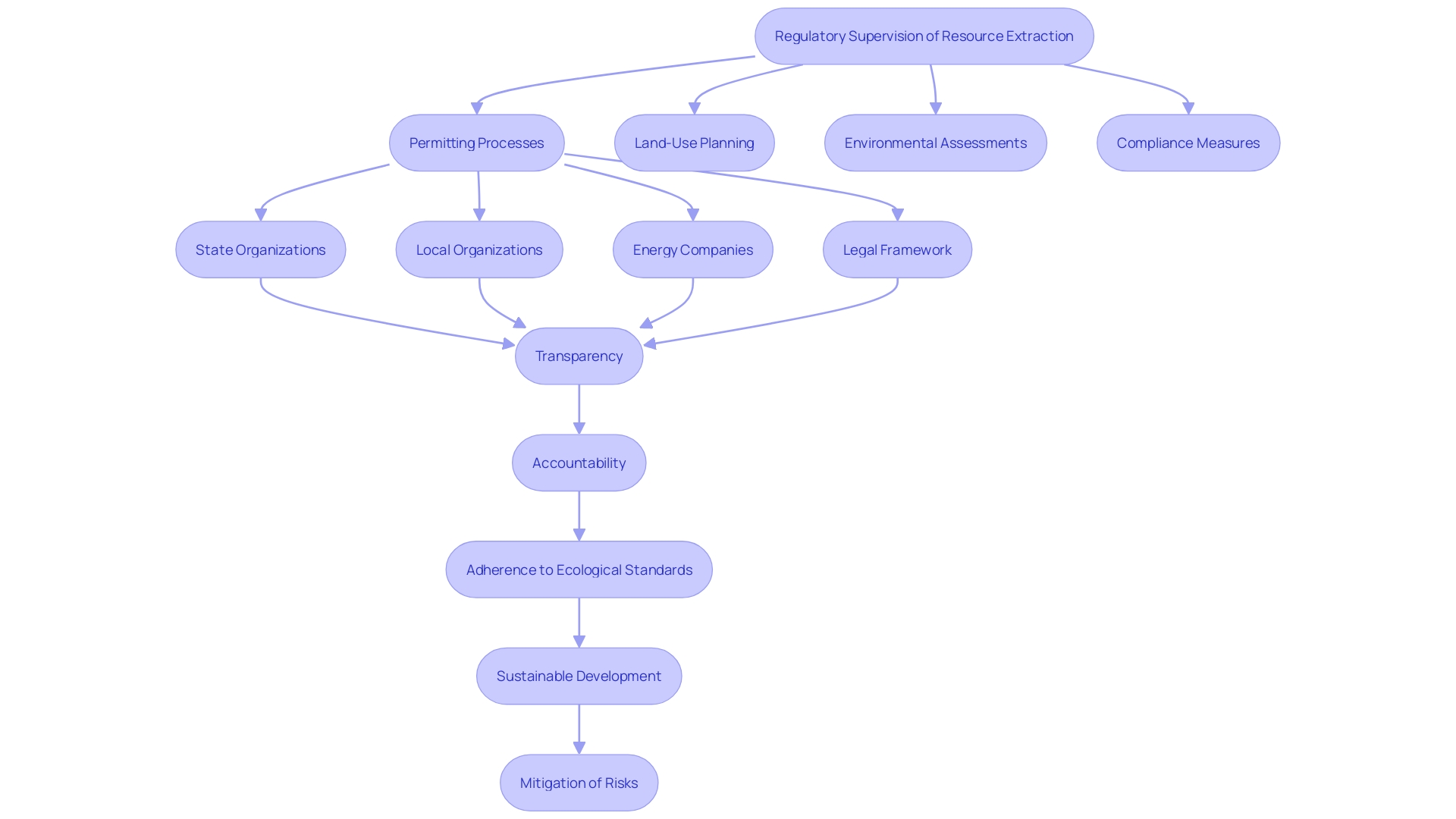
Economic and Environmental Implications of Shale Development
The advancement of rock resources has substantial economic and environmental consequences for Pittsburgh and its neighboring regions. From a financial perspective, the development of this resource can create job opportunities and boost regional economies. As Darrin Kelly noted, Pennsylvania's energy sector has long been a cornerstone of its economy, with over 250,000 residents employed in energy jobs that power homes and fuel vehicles. However, the ecological concerns associated with shale development, such as water contamination, air quality issues, and habitat disruption, cannot be overlooked. These impacts require a delicate balance between economic advantages and ecological stewardship.
Joanne Kilgour, Executive Director of the Ohio River Valley Institute, highlighted the challenge of obtaining credible research on the environmental risks of fossil fuel-based development, given that much of the available research is funded by the very industries being scrutinized. This highlights the significance of dependable scientific proof in evaluating the actual effect of rock formation development on communities.
In addition, the recent launch of the Energy Communities IWG's Getting Started Guide aims to assist communities in navigating the economic and social changes brought about by energy transitions. This resource provides a framework for planning and managing economic development strategies, emphasizing the need for comprehensive community involvement and careful planning.
Balancing the economic benefits of rock formation development with the necessity for nature conservation is a complex challenge. It requires strategic planning, transparent research, and active participation from all stakeholders to ensure that the benefits are maximized while minimizing the potential harms.
Key Recommendations for Sustainable Shale Land Management
To ensure the sustainable management of shale resource areas, several key recommendations can be made. First, conducting thorough ecological assessments before project initiation can help identify potential risks and inform wise management decisions based on the best available science, data, and indigenous knowledge. Second, fostering transparent communication with local communities can build trust and facilitate stakeholder collaboration. As pointed out by specialists, close working relationships with federal and state regulators are essential for successful resource management programs. Third, applying best practices in area use and restoration can reduce negative environmental impacts. For instance, the Department of the Interior's $130 million funding for the Abandoned Economic Revitalization Program aims to restore areas and provide economic assistance. Finally, ongoing monitoring and adaptive management strategies should be employed to address emerging challenges effectively. The use of geographic information system technology, which combines various data resources, can improve the efficiency of fieldwork activities and enhance the accuracy of identifying potential well site targets.
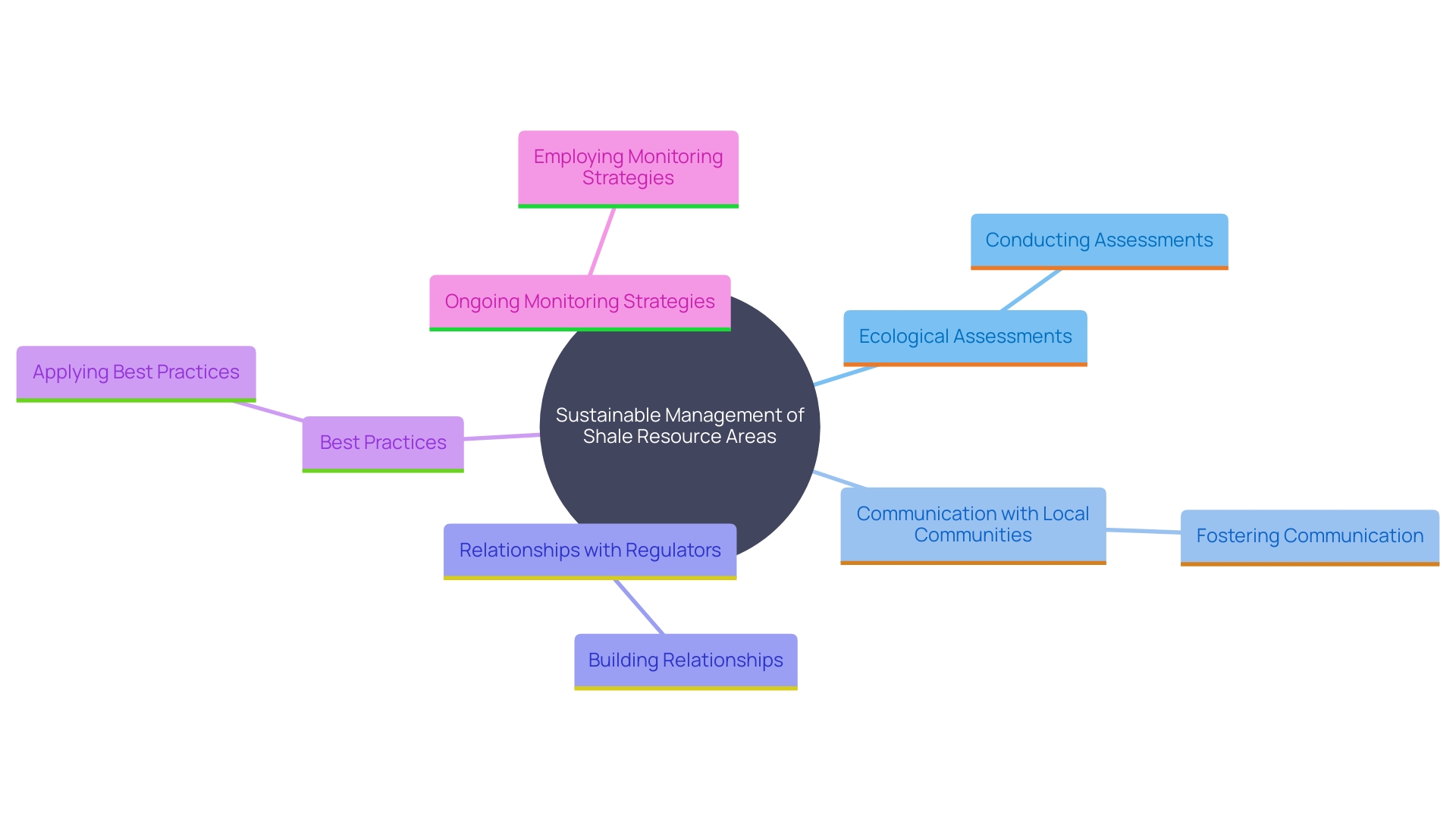
Future Directions for Shale Land Services in Pittsburgh
'The future of resource services in Pittsburgh is set for change propelled by technological innovations, regulatory alterations, and evolving public expectations.'. Companies are increasingly adopting digital tools for land management and compliance tracking, significantly enhancing efficiency and accuracy. For instance, combining national and state data with geographic information system technology has proven to improve fieldwork activities, particularly in locating undocumented well sites.
Furthermore, the increasing need for cleaner power sources is likely to encourage a transition towards combining renewable initiatives with shale development. 'This transition aligns with Pennsylvania's broader power policy goals, as emphasized by Assistant Secretary Brad Crabtree of the DOE, who noted that the state is well-positioned to lead the nation’s industrial decarbonization agenda due to its historical role in power production and the availability of robust policy tools.'.
Furthermore, the significance of renewable power integration is emphasized in recent studies and reports, which highlight the potential of geothermal resources as a clean and plentiful asset. These studies advocate for a diversified power portfolio that includes renewables to protect the environment, create jobs, and ensure a reliable power ecosystem. The shift towards renewable resources is not merely a trend but a crucial strategy for stakeholders in the oil and gas sector to stay competitive and adaptable to market dynamics.
Pennsylvania's proactive approach to addressing environmental and regulatory challenges through initiatives like the RISE PA grant program further underscores the region’s commitment to sustainable development. As John Carlson, Senior Northeast Regional Policy Manager at CATF, noted, reducing industrial emissions is essential for achieving climate goals, driving economic growth, and improving public health. The integration of renewable energy into shale land services represents an opportunity for the sector to adapt and thrive in a rapidly evolving energy landscape.
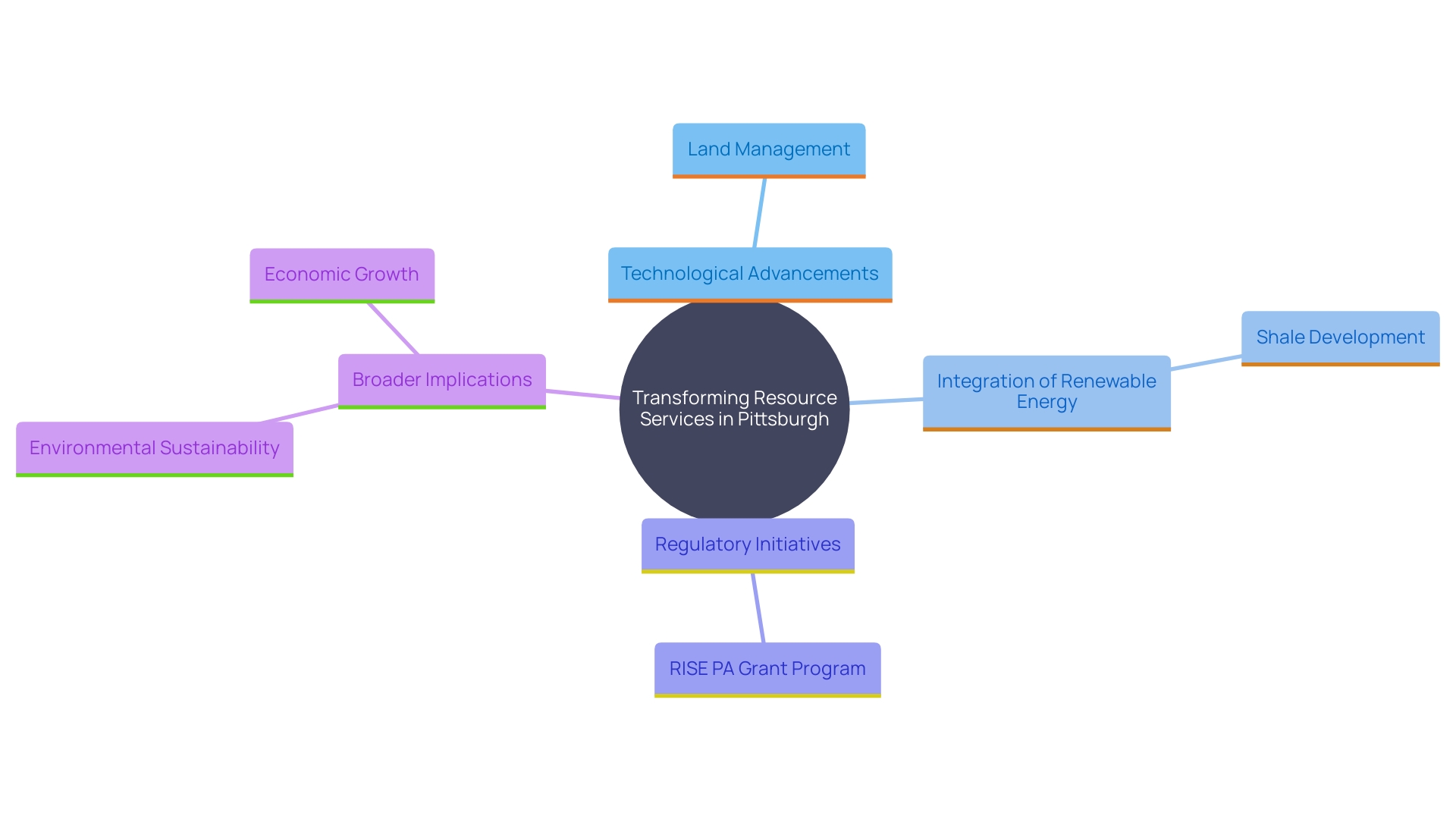
Conclusion
The exploration and production of oil and gas from shale formations require a multifaceted approach, emphasizing the importance of shale land services in land acquisition, regulatory compliance, and environmental management. Stakeholder engagement, as highlighted by the Federal Energy Regulatory Commission, is crucial for addressing environmental issues early in project development.
Pittsburgh's oil and gas industry is undergoing significant change due to advancements in extraction technologies and a growing focus on sustainability. The rise of unconventional gas production through fracking necessitates effective land services to navigate complex regulatory landscapes, especially as public support for clean energy alternatives increases.
Regulatory oversight is essential for ensuring compliance with environmental standards and maintaining public trust. The balance between economic growth and environmental protection is vital, as evidenced by ongoing discussions around the impacts of shale development.
Looking ahead, the future of shale land services in Pittsburgh will likely involve the integration of digital technologies and renewable energy projects, enhancing operational efficiency and aligning with evolving market demands. Pennsylvania's initiatives reflect a commitment to sustainable development, positioning the region as a leader in the energy sector.
In summary, successful management of shale land resources hinges on collaboration, transparency, and innovation. As the industry navigates regulatory complexities and environmental challenges, a focus on sustainability will be critical for long-term viability and public support.




